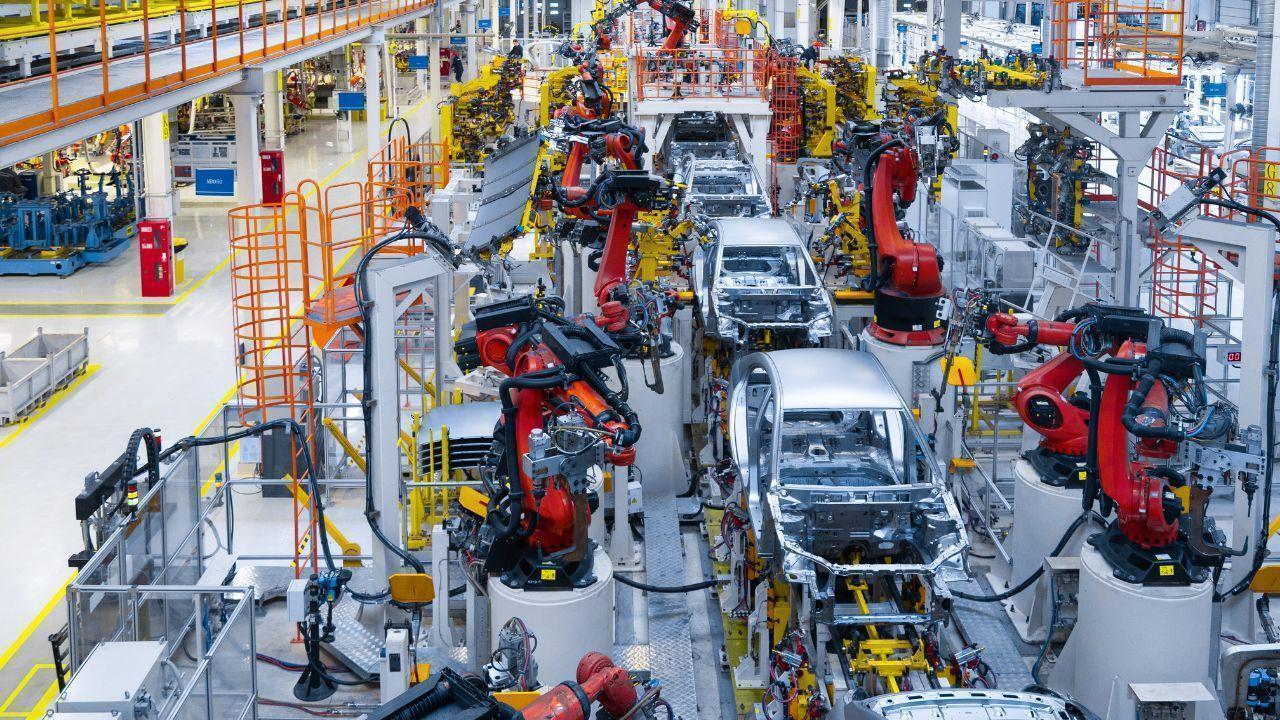
Post by : Meena Rani
The United Kingdom's automotive industry has achieved a remarkable milestone five years after Brexit, with total trade exceeding £115 billion in 2025. This growth comes despite concerns that leaving the European Union would harm the industry. Initially, many experts feared that customs checks, trade barriers, and new regulations would cause significant disruption. However, the sector has shown resilience, adaptability, and a forward-looking approach that has allowed it to thrive in the post-Brexit landscape.
Challenges Faced After Brexit
Brexit brought several changes that directly impacted the UK automotive industry. Companies faced increased paperwork due to customs checks at borders and new rules regarding the origin of car parts and materials. These changes added extra costs, delayed shipments, and made it more difficult for manufacturers to operate efficiently. Many businesses also had to adjust to differences in regulations between the UK and EU countries, ensuring that cars met the safety, environmental, and technical standards required for export.
Despite these obstacles, UK manufacturers quickly adapted. Many invested in technology to improve production efficiency and supply chain management. Some explored alternative suppliers outside the EU to avoid potential bottlenecks. Others focused on meeting new regulatory requirements proactively to maintain seamless exports to European markets.
Growth and Resilience in the Sector
The £115 billion trade figure is a reflection of the sector’s strength and resilience. The automotive industry in the UK has invested heavily in new technologies, particularly electric vehicles (EVs), hybrid models, and autonomous driving systems. These innovations not only help manufacturers compete globally but also align with increasing consumer demand for sustainable and environmentally friendly vehicles.
UK automotive exports have also grown beyond traditional European markets. Trade relationships with North America, Asia, and other regions have expanded, helping to offset the challenges posed by new trade rules with the EU. By diversifying export destinations, the industry has reduced dependence on any single market and strengthened its global presence.
Economic Importance
The automotive sector plays a vital role in the UK economy. It directly employs hundreds of thousands of people in manufacturing, engineering, design, and sales. Indirectly, it supports millions more through parts suppliers, logistics companies, dealerships, and service providers. The industry also contributes significantly to the nation’s GDP and tax revenues. Reaching £115 billion in trade demonstrates not only the industry’s scale but also its importance as a driver of economic growth and technological development in the UK.
Future Prospects
Looking ahead, the outlook for the UK automotive industry remains positive. Continued investment in electric vehicles, battery technology, and sustainable manufacturing practices is expected to strengthen the sector further. Innovation in areas such as autonomous vehicles and connected car technology also positions the UK as a competitive player in the global automotive market.
The government’s trade policies and international agreements will play an important role in shaping future growth. New partnerships and trade deals outside the EU are likely to create opportunities for further export expansion. At the same time, manufacturers will continue to focus on improving efficiency, reducing costs, and meeting evolving environmental standards.
The achievement of £115 billion in automotive trade five years after Brexit is a clear sign of the UK industry’s resilience, adaptability, and innovation. While the transition brought challenges, the sector’s proactive response and commitment to global partnerships have allowed it to not only survive but also thrive. With ongoing investment in technology and sustainability, the UK automotive industry is well-positioned to continue growing and contributing to the nation’s economic success for years to come.
UK automotive trade, Brexit impact, car exports, UK car industry










Advances in Aerospace Technology and Commercial Aviation Recovery
Insights into breakthrough aerospace technologies and commercial aviation’s recovery amid 2025 chall

Defense Modernization and Strategic Spending Trends
Explore key trends in global defense modernization and strategic military spending shaping 2025 secu

Tens of Thousands Protest in Serbia on Anniversary of Deadly Roof Collapse
Tens of thousands in Novi Sad mark a year since a deadly station roof collapse that killed 16, prote

Canada PM Carney Apologizes to Trump Over Controversial Reagan Anti-Tariff Ad
Canadian PM Mark Carney apologized to President Trump over an Ontario anti-tariff ad quoting Reagan,

The ad that stirred a hornets nest, and made Canadian PM Carney say sorry to Trump
Canadian PM Mark Carney apologizes to US President Trump after a tariff-related ad causes diplomatic

Bengaluru-Mumbai Superfast Train Approved After 30-Year Wait
Railways approves new superfast train connecting Bengaluru and Mumbai, ending a 30-year demand, easi